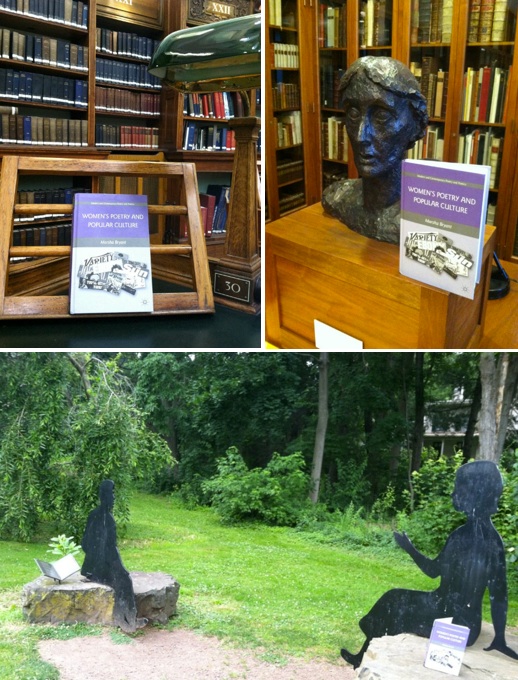Find first-year Brittain Fellow Amanda Golden’s review of Marsha Bryant’s Women’s Poetry and Popular Culture (Palgrave, 2011) in Tulsa Studies in Women’s Literature.
In her review, Golden observes that Marsha Bryant’s Women’s Poetry and Popular Culture is a vital contribution to women’s poetry studies and postwar poetry studies. Bryant begins by engaging the vexed, often pejorative, responses to “women’s poetry” and poets’ writing about popular culture. Analyzing different facets of the popular in each chapter, including material, visual, periodical, consumer, film, and media cultures, Bryant builds on the historical methods of the new modernist studies. In five chapters devoted to H. D., Stevie Smith, Gwendolyn Brooks, Sylvia Plath, and Ai and Carol Ann Duffy, Bryant addresses the complex relationship between popular contexts and the form of twentieth-century Anglo-American women’s poetry.
The image below captures Bryant’s book in the National Library of Ireland, with the Stephen Tomlinson bust of Virginia Woolf in the Mortimer Rare Book Room at Smith College, and with the silhouettes of Emily Dickinson and Robert Frost in Amherst, Massachusetts, where Golden visited while completing her review.

